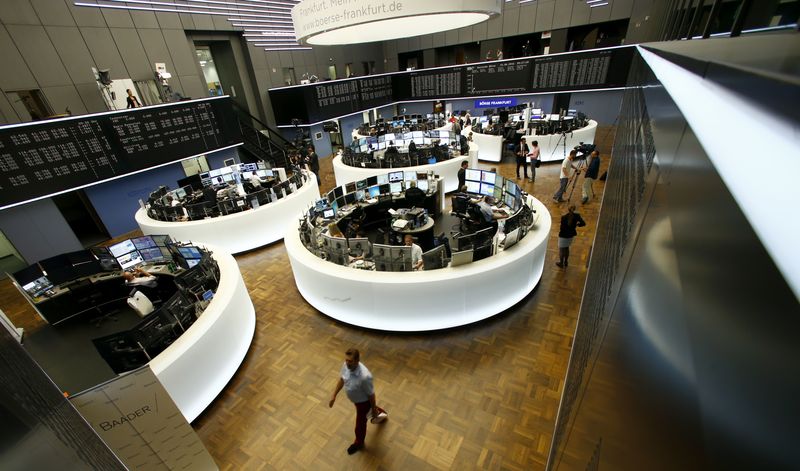Investing.com -- European markets traded in mixed fashion Wednesday as investors digested regional economic activity data as well as economic turmoil in France.
By 07:05 ET (12:05 GMT) Germany's DAX index gained 1%, France's CAC 40 increased by 0.4%, while the UK's FTSE 100 was down 0.3%.
French political uncertainty weighs
Data released earlier Wednesday showed business activity across the eurozone fell sharply last month as the bloc's dominant services sector joined the manufacturing sector in contracting.
HCOB's final composite Purchasing Managers' Index for the currency union, compiled by S&P Global (NYSE:SPGI) and seen as a good gauge of overall economic health, sank to 48.3 in November from October's 50.0.
While this suggests more economic pain ahead, it also points to more interest rate cuts ahead by the European Central Bank.
Political uncertainty in France weighed on the country's services sector, with the HCOB France services final PMI fell to 46.9 in November from 49.2 in October.
This comes as Prime Minister Michel Barnier's government faces votes of no-confidence, following a contentious decision by Barnier’s minority government to bypass parliamentary approval and push through a budget bill using special constitutional powers.
The right-wing National Rally has already confirmed it will back the motion introduced by the left-wing New Popular Front alliance, while also supporting its own no-confidence proposal.
Given the political alignment against Barnier’s administration, the collapse of his government appears increasingly likely after the vote.
OECD lifts UK growth forecast
The UK economy appears to be in a healthier state, with the S&P Global UK Services Purchasing Managers Index at 50.8 last month, down from October's 52.0 - the weakest since October 2023 but still in growth territory.
The Organisation for Economic Co-operation and Development revised its growth forecast for the United Kingdom's economy in 2025, projecting an improved outlook compared to earlier estimates.
According to the latest OECD Economic Outlook, the UK is expected to grow by 1.7% in 2025, an upward revision from earlier predictions.
Vestas slumps after CEO resignation
In corporate news, Rio Tinto (LON:RIO) stock fell 0.8% after the mining giant reaffirmed its focus on expanding production at an average annual growth rate of around 3% until 2033, pushing this target back five years which could reflect delays in key projects, including the Rincon lithium operation and the transition at Arcadium.
Vestas Wind Systems (CSE:VWS) stock fell 6.5% after the Danish wind turbine maker announced the resignation of CFO Hans Martin Smith.
Stellantis (NYSE:STLA) stock gained 1.7% after the auto giant dismissed a report by Corriere della Sera suggesting that outgoing Apple (NASDAQ:AAPL) CFO Luca Maestri was being considered as the company's next CEO, following Sunday's surprise resignation by Carlos Tavares.
Oil prices rise with OPEC+ in focus
Crude prices rose Wednesday, boosted by heightened geopolitical tensions as well as the prospect of OPEC+ extending supply cuts against weaker demand.
By 07:05 ET, the US crude futures (WTI) climbed 0.2% to $70.05 a barrel, while the Brent contract rose 0.2% to $73.78 a barrel.
Concerns over the brittle state of the ceasefire between Israel and Lebanon's Hezbollah, South Korea's curtailed declaration of martial law as well as prolonged fighting in Syria and Ukraine have all lent support to oil prices.
Both contracts surged over 2% on Tuesday.
Some momentum was stalled during the previous session by industry data showing an unexpected increase in US oil inventories, but eyes are turning to a meeting of major producers on Thursday.
The Organization of Petroleum Exporting Countries, and their allies, a group known as OPEC+, postponed Sunday’s meeting to discuss production levels until Thursday, providing more time for delegates to agree to a further delay in plans to increase production.
OPEC+ has been looking to gradually phase out supply cuts through next year, but the group has become concerned that weak demand and an increase in supply in 2025 will see prices slump sharply.
(Navamya Acharya contributed to this article.)
